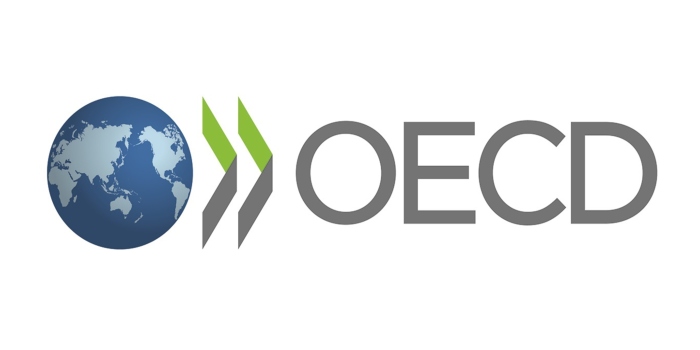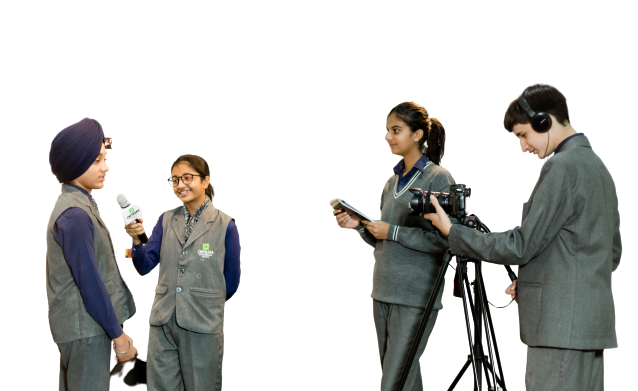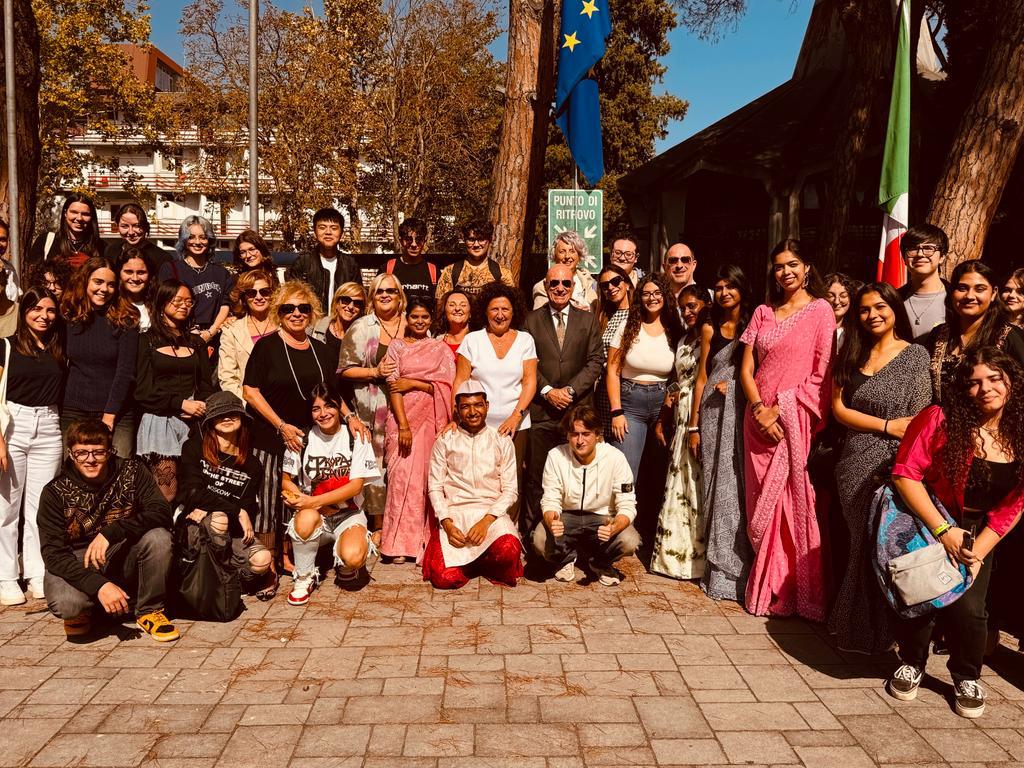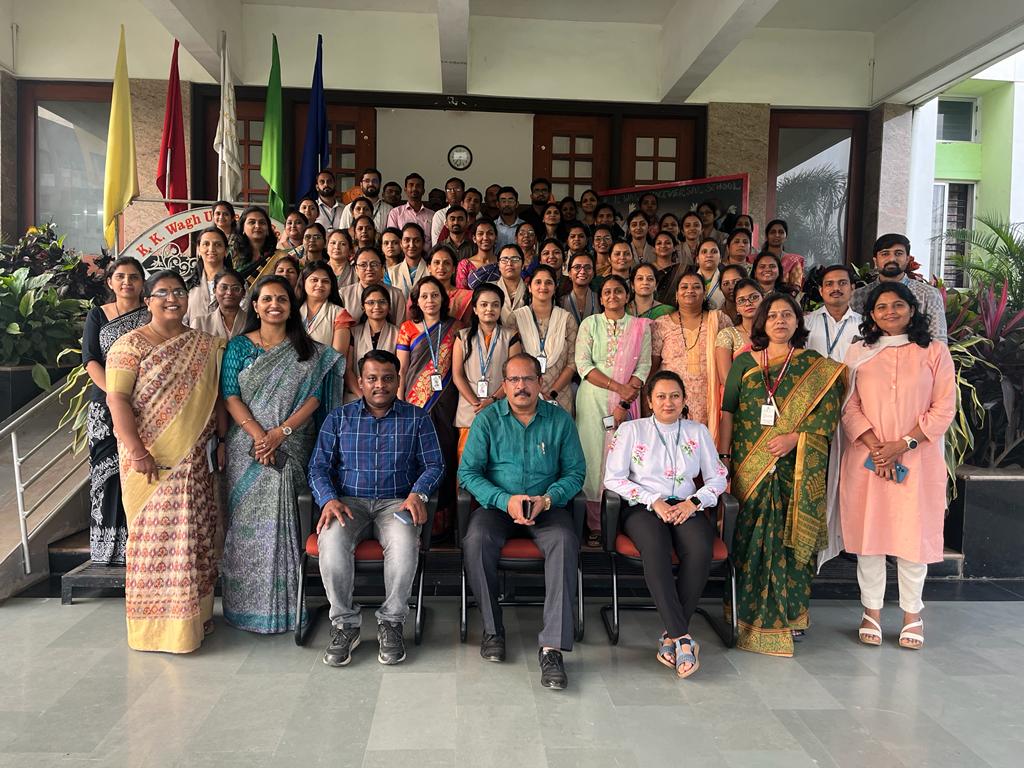Our EDUREFORM Innovation Managers have read the latest report published by OECD. This report is designed to give policy makers, researchers, educational leaders, administrators and teachers a robust, non-specialist source to inform strategic thinking and stimulate reflection on the challenges our education sector is facing. It is a comprehensive report, you can therefore read below the summary our Innovation Managers have written after reading the complete report.
Trends Shaping Education 2022 – by EDUREFORM Innovation Managers
OECD’s latest publication “Trends shaping Education 2022” deconstructs the role of education in dynamic global trends. This report tries to trace how our lives are changing with economic, social, demographic and technological changes worldwide. Moreover, the use of relatable and thought-provoking scenarios encourages us to think about the future of education in this constantly changing world.
Global economic growth has lifted the living standards of many people worldwide but this increasing affluence hasn’t benefited all. The socio-economic inequalities within and across countries are widening. For example, in 2019, the GDP per capita for OECD countries was about USD 39 307, more than three times than the world average of USD 11 057. Alongside, the rise in production and consumption of goods and services is straining our environment by encouraging unsustainable use of resources. Here education can play a role in empowering the citizens worldwide to work towards sustainable development and green growth. Furthermore, these global trends in economic development make it imperative to make educational systems more equitable so that it becomes an effective tool to tackle the sources of inequalities affecting societies.
Moreover, the increasing investment on intangible assets worldwide over the recent years highlights the importance of developing individuals’ technical and soft skills through education.
The ongoing demographic transition characterized by the growing elderly population and declining fertility rates emphasizes the need to redistribute learning opportunities over the lifecycle so that all citizens can upskill, reskill, and retrain, regardless of their age, in order to contribute to society. With technological innovations, humankind is engaging in extra-planetary endeavors. So, it is must that education empowers the citizens with skills that help them expand the horizons of humanity.
The change in global trends has affected both personal and professional aspects of our life. With digitalization, our communities are growing safer and more connected, although differences in income, age, and gender continue to persist. In these aspects, education can help build societies more inclusive and caring by fostering such values in the individuals. Humans work fewer houses now than a century ago. Furthermore, flexible work patterns like freelance, part-time or telework have also become more common. With changes in types of job roles and evolving technologies, the role of lifelong learning systems becomes essential to support adaptability and resilience to navigate the future of work. Although these changes give us the opportunity to explore our potential, they come with challenges of job instability and precariousness. This reduction in working hours can be accounted for an increase in productivity, income, labor and affordable leisure. However, a large difference persists between and within countries in terms of working hours. For example, with employees in Colombia and Turkey working on average over 46 hours per week in 2019, compared to just under 30 hours per week in the Netherlands. In this regard, role of education in preparing individuals for life and learning outside work becomes significantly important.
Individuals are increasingly relying on wearable tech to explore their health parameters and relationships. With our increasing time on gadgets, the digital footprints we leave behind (on social media, smart devices or sensors) are being gathered, organized and analysed at an unprecedented scale enabling algorithms to make decisions for us. This is leading to quantification and commodification of our private lives. Education can help us develop critical thinking skills so that we can identify and raise awareness about the increasing ‘datafication’ of everyday life and associated risks. This will empower us to make informed choices about our life, wants and needs.
Changes in policy environment, economic status and technology has influenced the family structures to a great extent characterized by declining marriage and fertility rates, increasing divorce, delay in the average age of marriage, and long-term partnerships, like cohabitation and civil unions. Despite these changes, women still bear the brunt of reproductive and child-rearing work while balancing between the office and home. Education policies can help build societies where all members are equitably cared for and gender stereotypes are fought.
Although housing conditions and attention on hygiene and sanitation have increased worldwide, housing affordability is still a serious concern. The education system along with all the social services must work to support the healthy development of all students by removing learning barriers within schools and classrooms.
Today we have abundant information at the touch of our fingers. This access to information is dependent on an individual’s access to devices like smartphones, computers, etc. In this regard, we need to build education systems that are accessible, promote digital literacy and equity. Education should equip all learners with the competencies needed to search, evaluate and use information and knowledge that is available to them. More and more powerful Artificial Intelligence [AI] systems are evolving which are capable of automating decisions in various aspects by machine learning. Although powerful algorithms raise issues of ethics, transparency, accountability and privacy, the collaboration between humans and machines holds the promise of supporting high-quality education through the personalization of teaching and learning.
Besides, digital technologies are broadening the access to and involvement in scientific publications and data to different stakeholders. This can accelerate the generation of new ideas, as well as social and economic benefits. A study including over 12 000 papers indexed by Web of Science found that the number of retracted papers increased from less than 200 in the year 2000 to over 1 200 in 2020. Retraction of scientific publications is both proofs that mistakes take place and that the research community has tools to identify and correct them. Scientific collaboration may help prevent malpractice and increase engagement in scientific activities.
Sound political decisions and democratic citizenship rely on good information. With the enormous amount of information on hand, there is an increase in misinformation and information worldwide. Education can empower individuals to identify authentic information from the fake ones. Also, education can help cultivate the essential knowledge, critical thinking and communication skills and attitudes necessary to participate in deliberative politics and society. Furthermore, social media and interest-based platforms allow users to grow their networks and find support, express themselves, experiment with desired identities, and selectively self-present. This digital world can also enable individuals to exploit other individuals and engage in cyberbullying. Education systems should prepare individuals to participate in the digital world ethically and responsibly.
With globalization and the digitalization of the world, the way we define our life and identity are changing. New ways of collaboration and belonging are emerging and previously suppressed groups are finding their voices. The virtual world facilitates the exploration and expression of personal and group identities in an entirely new way. In this context, education systems are responsible for meeting the needs of diverse learners and creating local senses of belonging and citizenship, while simultaneously cultivating global competencies for the 21st century. Education can help socialise individuals into common norms and values while supporting the positive identities and agency needed to pursue learning and well-being.
Within states, steady migration flows have diversified populations and societies, bringing greater cultural diversity and economic opportunities. Beyond states, multilateral organisations have proliferated, reflecting steady growth in international collaboration as governments confront increasingly complex and global issues, from inequality to climate change. Therefore, supplying appropriate resources and support for students of different backgrounds will continue to be a priority for education systems. Education can support learners to develop strong global competencies, helping citizens to bond across cultural and social differences and contribute to solving our shared, global challenges.
Carol Hanish emphasized the phrase “Personal is political.” Today, citizens understand politics beyond ballot boxes. They understand and experience politics in novel ways: more personally, more informally and outside the domain of conventional institutions and geographical boundaries. Meanwhile, demands to include more voices in the public debate, such as those of younger citizens, are growing. Education has the role of channeling society’s expectations about the kind of citizens children ought to become. Education should equip individuals to voice their opinions and engage actively in their communities. Furthermore, education plays a key role in raising responsible citizens: citizens that realise their actions come with consequences, and that act empathetically in accordance.
Human rights are universal and inalienable; however, many individuals continue to face discrimination based on who they are or are perceived to be. Education needs to empower individuals to identify and break prejudices towards race, background, gender, disability, or sexual orientation so that all individuals can participate fully in all aspects of life. This will also ensure accessible, acceptable, adaptable and affordable education for all.
As our relationships and worlds are becoming more digital, it becomes imperative to reflect on our relationships to ourselves and our physical world. Earth is warming, sea levels are rising, seasons are slowly vanishing, heat waves and wildfires are increasingly making summers “no go zones” for entire regions. In this context, education has a role to foster thriving relationships with our own minds and bodies, with other human beings and with the natural world. Education can help develop R&D systems that are capable of developing technological solutions to these environmental problems. Moreover, Education can help make individuals environmentally conscious by helping them re-connect with nature through outdoor learning and daily access to nature so that they learn about, value and grow with our natural world.
Rene Descartes said, “I think, therefore I am.” The number of people vulnerable to and having lifestyle diseases is increasing worldwide. People all over the world have increased the consumption of ultra-processed foods which is impacting their overall wellbeing. Education can play a role in ensuring all students have access to nutritionally balanced diets. Moreover, promoting strong health literacy while raising awareness of the social and environmental implications of food production and consumption can help reinforce the sustainability of food systems, contributing to more efficient land use at the same time as they protect and enhance the natural resource base.
Technology has enabled humans to counter life-threatening conditions like cancer. Advanced human-machine interfaces, implants, drugs and genetic modification all increasingly enable humans to enhance their physical, cognitive and emotional selves. A growing number of biotech companies are even trying to cure ageing and prevent signs of aging. However, while opening up tremendous possibilities, human enhancement is also raising important ethical challenges and questions about what it means to be human. Education is key to helping us think through these ethical challenges, taking into account individual versus collective well-being.






nikhil Verma
Very informative!